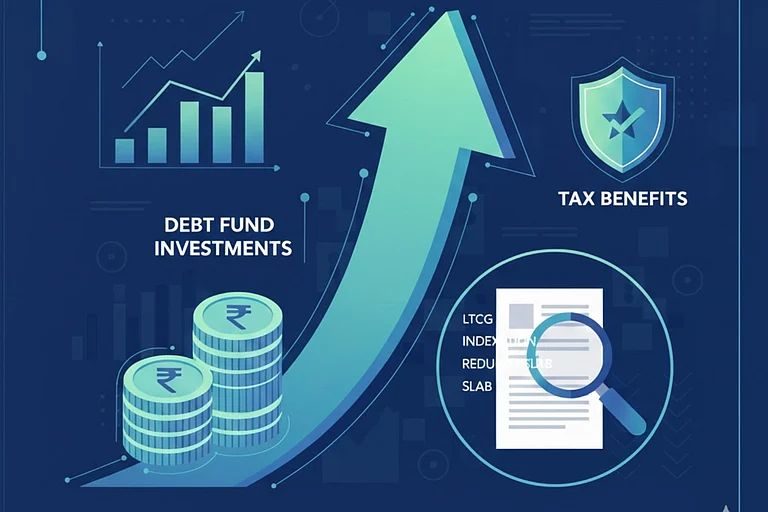Sponsored Content
As I look back, festivals in India have always been more than occasions of celebration. They are moments when families come together, homes are renewed, and traditions are passed on. I still recall how festivals once meant preparing sweets at home, buying new clothes, or bringing home gold. Those rituals carried a sense of joy and anticipation that defined the season. Today, while the essence of celebration remains the same, the way we express it has evolved. Alongside lamps and gatherings, we now see online shopping festivals, digital gifting, travel bookings, and festive discounts on everything from food delivery to entertainment. What has not changed is the spirit of sharing and upgrading. Festivals continue to inspire us to spend, celebrate, and aspire.
The festival effect on consumption
Festivals naturally spark economic activity. Families plan big purchases around these occasions, whether it is a new vehicle, a home appliance, or even a holiday. Businesses, in turn, align launches and offers to match the festive mood. The results are visible everywhere: crowded malls, record e-commerce traffic, buzzing restaurants, and surging digital transactions. What makes this even more significant is its reach. Rural and semi-urban India participate actively, ensuring that the consumption cycle is not limited to metropolitan centers. This widespread demand reflects one of the strongest drivers of India’s economic journey, our domestic consumption.
From traditions to technology
If earlier generations saved diligently for months to make their festive purchases, today technology has changed the rhythm. Consumers can buy at the click of a button, celebrate virtually with loved ones, and access credit seamlessly. Even financial decisions have found a festive link. Many individuals choose to start investments during these months as a symbolic beginning. This blending of tradition with modernity highlights a larger truth that while the spirit of festivals remains constant, the channels of consumption keep evolving. For investors, this continuity combined with innovation is what makes the consumption theme so powerful.
India’s young population, rising incomes, and aspirational outlook make consumption central to our growth narrative. Private consumption already contributes significantly to our GDP and is expected to remain resilient. A consumption fund is designed to channel this opportunity into a diversified investment approach. By investing in businesses that benefit from rising demand, ranging from FMCG and retail to automobiles, hospitality, financial services, and even digital platforms, it allows investors to participate in India’s consumption-led growth story. Festivals highlight seasonal surges, but the real story lies in long-term structural shifts such as urbanization, premiumization, digitization, and lifestyle upgrades that will continue to shape spending in the years ahead.
Festivals and investing
Festivals offer lessons that resonate with investing. Preparation in advance ensures smooth celebrations, much like financial planning supports long-term goals. The return of festivals year after year mirrors the importance of consistency in wealth creation. And just as celebrations bring families together, diversification creates balance in an investment portfolio. These reminders make the festive season an ideal time to reflect not only on traditions but also on financial aspirations.
A balanced perspective
As with all investments, it is important to recognize risks. Consumption-led businesses may face short-term challenges from inflation, supply disruptions, or shifts in sentiment. Investors should therefore align such opportunities with their individual risk profile and horizon. A professionally managed consumption fund seeks to address these complexities through research-driven stock selection and diversification, offering a structured way to be part of India’s evolving growth story.
From lighting earthen lamps to decorating homes with smart lights, from exchanging sweets to sending digital gift cards, India’s festivals continue to evolve. Yet the essence of celebrating abundance and togetherness remains unchanged. For businesses, festivals represent opportunity. For investors, they point to a structural theme at the heart of our economy. Investing in a consumption fund with a long-term perspective can be a meaningful way to participate in this ever evolving economy.
Disclaimer: The views expressed herein are based on internal data, publicly available information and other sources believed to be reliable. Any calculations made are approximations, meant as guidelines only, which you must confirm before relying on them. The information contained in this document is for general purposes only. The document is given in summary form and does not purport to be complete. The document does not have regard to specific investment objectives, financial situation and the particular needs of any specific person who may receive this document. The information / data herein alone is not sufficient and should not be used for the development or implementation of an investment strategy. The statements contained herein are based on our current views and involve known and unknown risks and uncertainties that could cause actual results, performance or events to differ materially from those expressed or implied in such statements. Past performance may or may not be sustained in the future. LIC Mutual Fund Asset Management Ltd. / LIC Mutual Fund is not guaranteeing / offering / communicating any indicative yield on investment made in the scheme(s). Neither LIC Mutual Fund Asset Management Ltd. and LIC Mutual Fund (the Fund) nor any person connected with them accepts any liability arising from the use of this document. The recipients(s) before acting on any information herein should make his/her/their own investigation and seek appropriate professional advice and shall alone be fully responsible / liable for any decision taken on the basis of information contained herein.
Mutual Fund investments are subject to market risks, read all scheme-related documents carefully.
Disclaimer: This is a sponsored article. It is not part of Outlook Money's editorial content and was not created by Outlook Money journalists.














